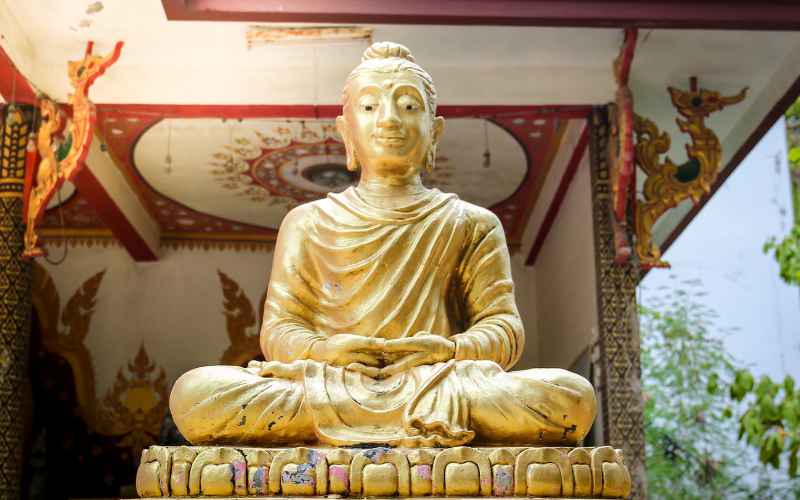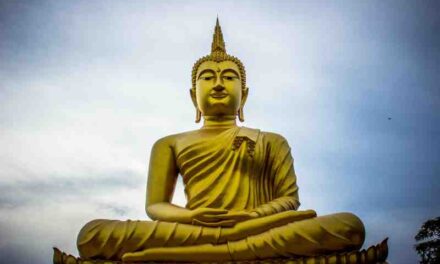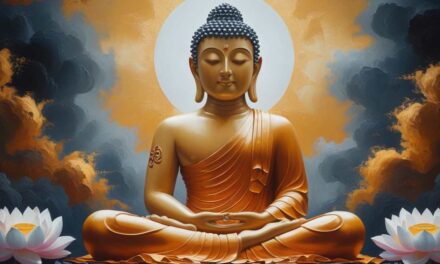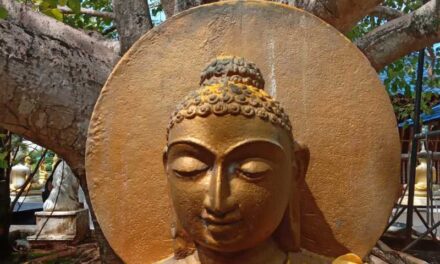In the vast tapestry of Buddhist teachings, the Bodhisattva ideal stands as a radiant thread, weaving compassion and altruism into the very fabric of Mahayana Buddhism. This profound concept lies at the heart of Mahayana practice, guiding practitioners on a path of enlightenment not only for their own liberation but for the benefit of all sentient beings. In this blog, we will delve deep into the Bodhisattva ideal in Mahayana Buddhism, seeking to understand its significance and the transformative power it holds.
The Bodhisattva: A Compassionate Aspirant
The term “Bodhisattva” can be dissected into two parts: “Bodhi” refers to enlightenment, and “sattva” denotes being or essence. Thus, a Bodhisattva is someone who aspires to attain enlightenment—the state of Buddhahood—not for personal salvation but out of boundless compassion for the suffering of others. The Bodhisattva ideal embodies the selfless dedication to helping all beings transcend suffering and attain liberation.
The Bodhisattva Vow
The Bodhisattva ideal is encapsulated in the Bodhisattva vow, a solemn commitment made by practitioners. This vow typically includes the following elements:
- The Vow to Attain Buddhahood: A Bodhisattva vows to achieve full enlightenment, thereby acquiring the wisdom, compassion, and skillful means to guide others to liberation.
- The Vow to Benefit All Beings: The Bodhisattva dedicates their entire existence to the well-being and liberation of all sentient beings, with no exceptions.
- The Vow to Cultivate Virtues: Bodhisattvas strive to cultivate virtues such as patience, generosity, loving-kindness, and ethical conduct as a means to purify their minds and serve as role models for others.
- The Vow to Embrace Suffering: Bodhisattvas willingly accept and transform suffering, viewing it as an opportunity to deepen their compassion and empathy.
- The Vow to Avoid Self-Centeredness: Bodhisattvas work tirelessly to transcend self-centeredness and ego clinging, recognizing that these obstacles hinder the realization of their compassionate aspirations.
Compassion and the Bodhisattva
Compassion is the lifeblood of the Bodhisattva ideal. Bodhisattvas do not merely sympathize with the suffering of others; they fully empathize with it, feeling it as their own. This deep compassion propels them into action, motivating them to alleviate the pain and suffering of beings in whatever way possible.
The aspiration to alleviate suffering is not limited to physical or tangible forms of assistance. It extends to the realm of mental and emotional suffering as well. Bodhisattvas offer solace, guidance, and support to those in need, helping individuals navigate the sea of afflictions and delusions that bind them.
Wisdom and the Bodhisattva
While compassion fuels the Bodhisattva’s journey, wisdom lights the way. Bodhisattvas seek to acquire profound insight into the nature of reality, often guided by the teachings of emptiness (sunyata). Emptiness teaches that all phenomena lack inherent, independent existence, challenging our conventional understanding of the self and the world.
By gaining insight into emptiness, Bodhisattvas deconstruct the barriers of ego and dualistic thinking, recognizing that there is no fixed, separate self to cling to. This wisdom liberates them from suffering and enables them to skillfully guide others on the path to liberation.
The Bodhisattva in Practice
The Bodhisattva path is not reserved for a select few but is accessible to all who sincerely embrace its ideals. While it may seem like a lofty aspiration, the essence of the Bodhisattva path lies in everyday actions and attitudes. Here are some practical ways in which individuals can embody the Bodhisattva ideal:
- Cultivating Loving-Kindness: Develop a heart of loving-kindness and extend compassion to all beings, including those who may seem difficult to love.
- Acts of Generosity: Practice generosity in both material and non-material ways. Give selflessly and without expectation of return.
- Active Listening: Be present for others and listen deeply to their joys, sorrows, and concerns. Offer a compassionate presence.
- Engaging in Mindfulness: Practice mindfulness to develop self-awareness and reduce reactivity. A calm and centered mind is more effective in aiding others.
- Service to Others: Engage in acts of service and charity. Volunteer, help those in need, and contribute to the betterment of your community.
- Cultivate Wisdom: Dedicate time to studying and reflecting on Buddhist teachings to deepen your understanding of the path.
- Embrace Challenges: Face life’s challenges with equanimity and resilience, viewing them as opportunities for growth and compassion.
Conclusion
The Bodhisattva ideal is a radiant jewel in the crown of Mahayana Buddhism. It reminds us that the path to enlightenment is not a solitary pursuit but a collective endeavor aimed at the liberation and well-being of all sentient beings. By cultivating boundless compassion, wisdom, and the aspiration to alleviate suffering, individuals can embody the Bodhisattva spirit in their daily lives, inching closer to the realization of their ultimate goal—the enlightenment and liberation of all.





